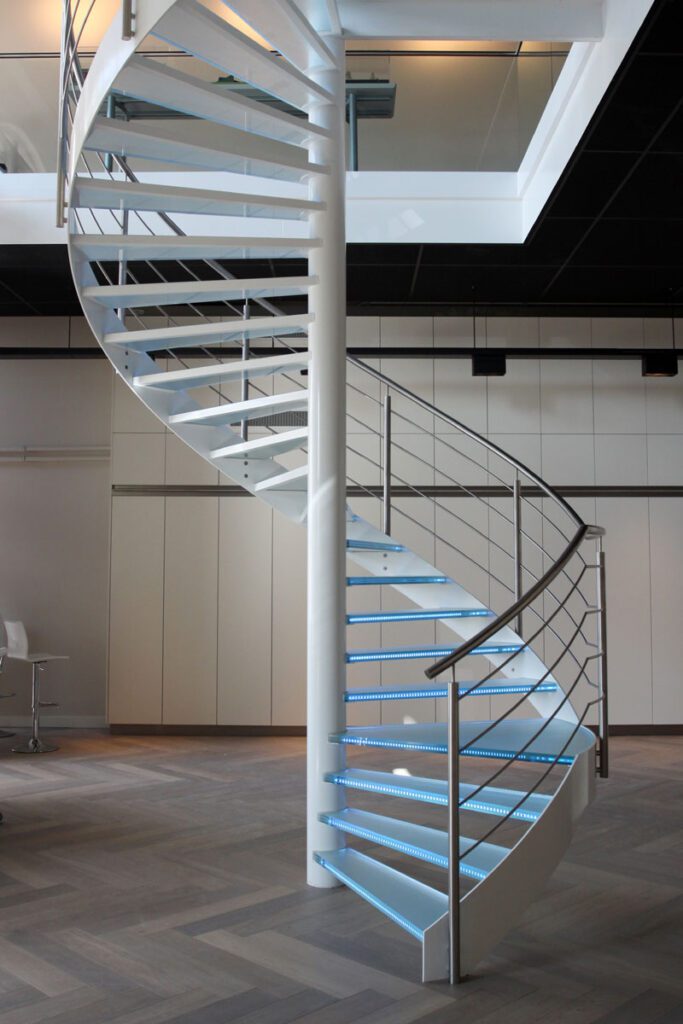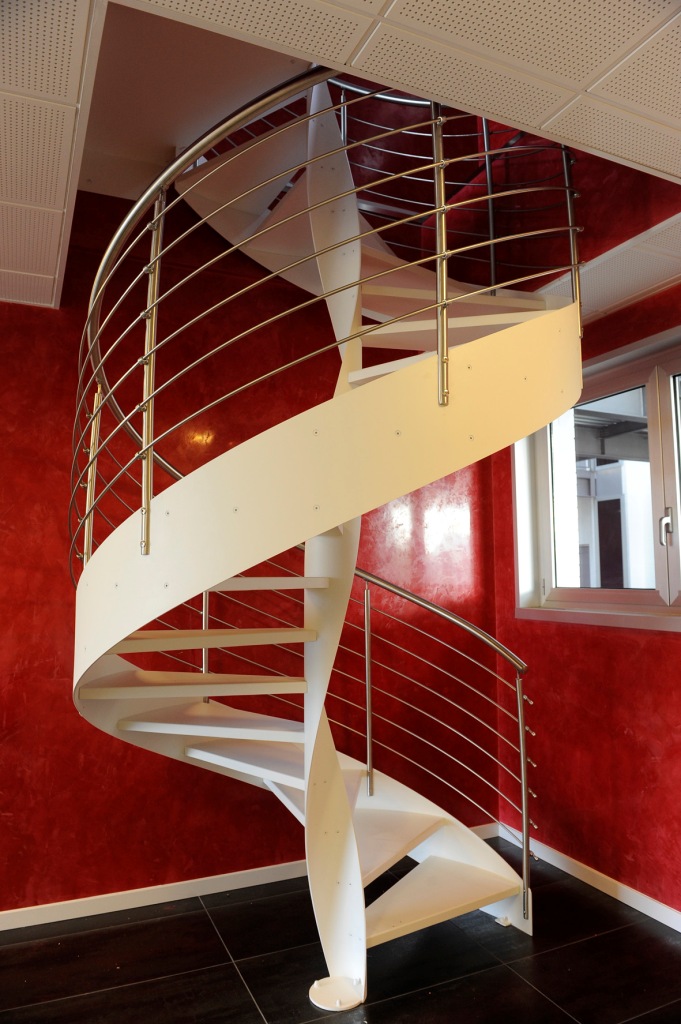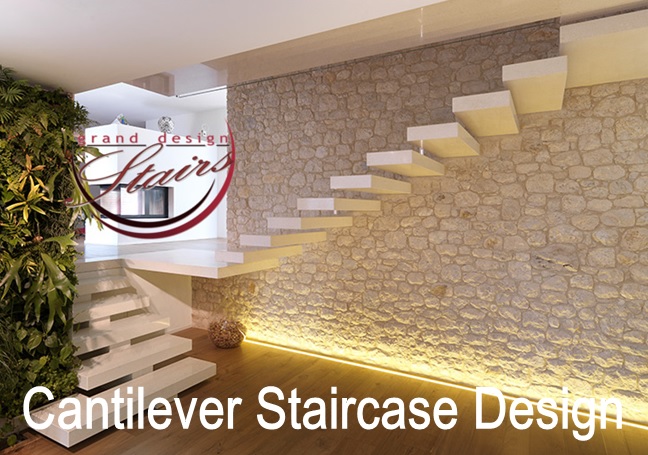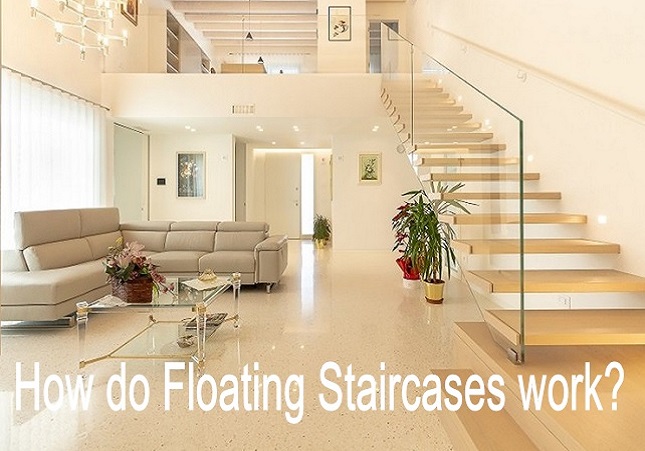Here below you find the answers of our Stairs Experts to Stairs frequently asked questions/ FAQ.
If you are about to choose your new staircase but have some doubt on measurements, building regulations, structural stairs details, staircases prices and more here you will find a useful guide to avoid any mistake and choose instead the perfect staircase for your space.
- Spiral Staircases
- Cantilever or Floating Staircases
- Curved and Helical Staircases
- Glass Staircases
- Staircase Design
- Staircases General Questions
FAQ on Spiral Staircases
Stairs: the 5 things you need to know before buying a staircase
Q. Are Spiral Staircases more expensive than traditional stairs?
R. In some cases yes, in others no. We offer different designs and sizes for both spiral staircases and traditional stairs. The price really depends on the staircase width, height and materials used, not on the shape or design.
Q. Are spiral staircases more dangerous than traditional stairs (open stairs)?
R. If spiral staircases have a small diameter they can be uncomfortable to climb. They are also generally steeper than traditional stairs. If the spiral staircase diameter is big (for example 2500 mm and more) they can be even safer than open staircases.
Q. Are spiral staircases legal?
R. Spiral staircases are legal but need to comply to building regulations which are different in each country and sometimes regions too. In England the Building Regulations – approved doc. K – require a minimum Clear Width on each tread of 600 mm for domestic staircases serving one room only. The minimum required staircase diameter is therefore 1400 mm. You can find more information on this subject on Staircases Building Regulations – Approved Doc K.
Staircases Building Regulations differ in each European Country, Middle East and Usa. If you need more information on this please contact our team
Q. Can I Install a spiral staircase by myself or do I need a professional installer?
R. Install a spiral staircase may be tricky. There are many DIY stores that sell different staircase as a kit. The staircases come with installation guide and sometimes video. If you have some skills in DIY works you just need to follow the guide. However, the DIY installation is not fast, you need to take your time and be very careful during the all installation process. The installation of our Grand Design Stairs is different from the kit you find in DIY stores. All our staircases are fully pre-fitted in our factory and come to site ready to be installed in your house or commercial space. Check following post on spiral staircase design and find out if you can install the spiral staircase by yourself.
FAQ on Cantilever or Floating Staircases
Stairs frequently asked questions: the 5 things you need to know before buying a staircase
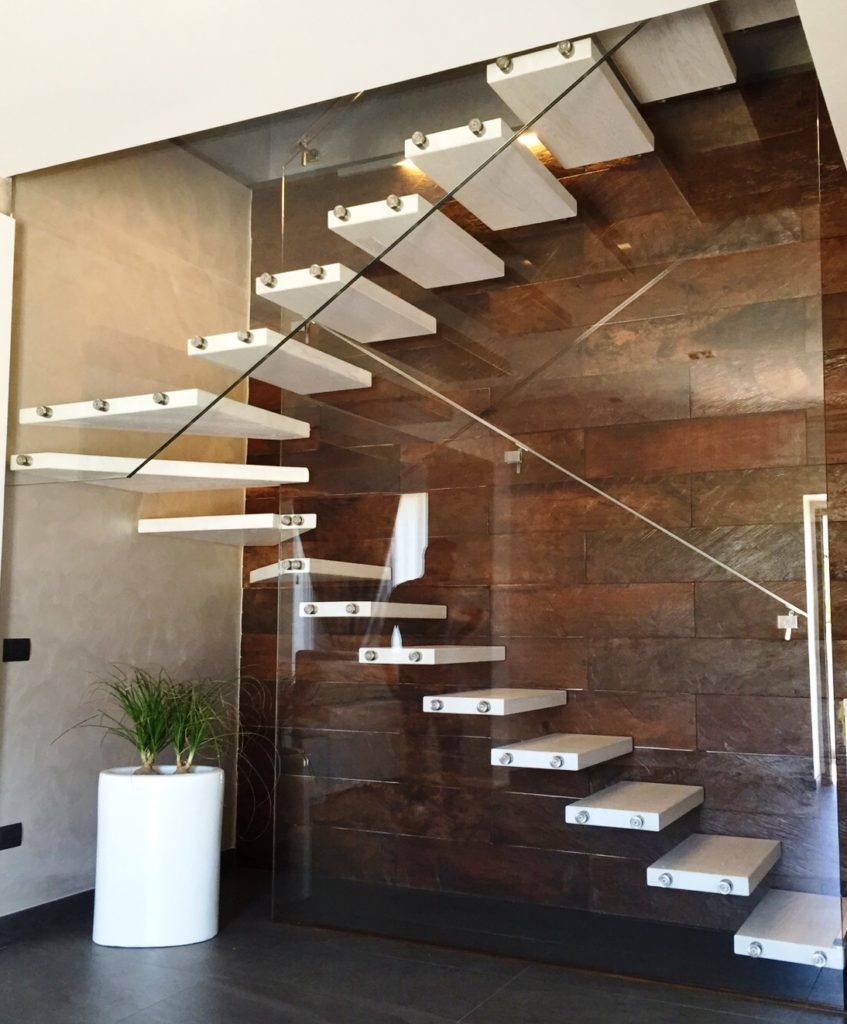

Q. What are cantilever or floating stairs?
R. Cantilever or floating staircases have invisible supporting structure and individual steps (stairs) coming out or fixed to a supporting wall. The floating effect can be achieved in different ways. You can find complete information on this subject on our post named “How do Floating Staircases work“?
There are different ways to achieve the floating stair effect on a staircase. Here below the floating staircases systems we recommend.
• 1-Floating Staircases with concealed steel supporting element
• 2-Floating Staircases with visible wall stringer
• 3-Floating Staircases with Steps fixed directly to wall
• 4-Floating Stairways with Structural Glass Walls
Q. How much for a floating Staircase?
R. The price range for a Cantilever or Floating Staircase is between $4,000 and $40,000. The range is so wide because floating stairs can be manufactured with different engineering, materials and finishes. The choice of a cost-effective Floating Staircase Solution or a Luxury cantilever Stairway is completely up to you. You can find more information on floating staircases prices on our post “What is the price of a floating staircase?”
FAQ on Curved and Helical Staircases – Stairs frequently asked questions: the 5 things you need to know before buying a staircase.
Q. What is a Curved Staircase?
R. A Curved Staircase, sometime also called Helical Staircase, is a set of steps and risers that do not follow a straight line, but bend to wrap a curved wall, a column or even a lift. Curved Staircases can also be free-standing as central feature on an atrium or living room. A curved staircase do not need a center pole but are structurally supported by lateral stringers or spines fixed underneath steps.
Q. What is a Helical Staircase?
R. A Helical Staircase generally has a smaller radius than a curved staircase. It provides a twisted design similar to a spiral staircase, but always without a central column to support steps.
Q. Are curved staircases expensive?
R. Curved and helical staircases are expensive if compared to traditional or spiral stairs. The average cost of a curved staircase is between $8,000 and $50,000, depending on geometry, materials and finishes. More info on our article on Curved Staircases prices.
FAQ on Glass Staircases
Q. Are glass stairs safe?
R. yes, glass staircases are safe. The glass used in manufacturing steps and railing is a safety laminated and tempered (toughened) glass. Among the layers of glass there is an invisible film that, if glass breaks, keeps all the pieces of glass together. Here is a picture of broken laminated glass:
Q. Are glass stairs slippery?
R. There are different ways to achieve a non-slippery surface on treads. The one we suggest is the non- slippery diamond glass.
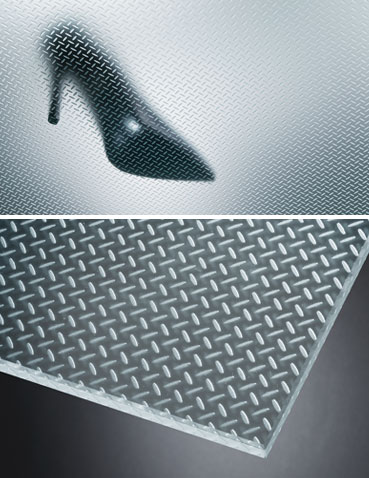

FAQ on Staircase Design
Stairs frequently asked questions: the 5 things you need to know before buying a staircase
Q. What is Staircase Design?
R. The staircase is not only a functional item in your room, it is an important element in any Interior Design. For this reason we have a team of technicians and designers working everyday on stairs plans, drawings and diagrams to find the best Custom Stairway Solution (Staircase Design) for each one of our customers.
FAQ on Staircases general questions and answers
Stairs: the 5 things you need to know before buying a staircase
Q. Which type of staircase is best?
R. When choosing the best staircase for your home you need to take into account following factors:
Space available, Design, style and materials, Budget available, Building Code and safety
A comprehensive guide to find out which is the best staircase can be found on our article “Tips to choose the Perfect Staircase Design”
Q. How much does a staircase cost?
R. The average price of a custom staircase for domestic use is around USD 5,000, depending on the design and materials used in the manufacturing. The price of a kit staircase is around USD 1,700.
Q. How many steps are there in a set of stairs?
R. It is recommended to have no more than 12 or 13 steps in a set of stairs (straight flight), then a landing is required. This rule is normally regulated by the Staircases Building Codes of each Country or Region.
Q. What is the best flooring to put on stairs?
R. The choice of stairs flooring is huge. Wood, timber, carpet, tiles, marble or resin and many more choices. It all depends on your budget and interior design style you want. More info on our article on Stairs Flooring.
Q. What is the maximum rise and run of stairs? Are there any building codes?
Is there a standard height and depth for stairs?
R. There are many Staircases Building Codes around the world. Some Countries apply a general national code, but the majority of the codes are regional. There are specific codes giving maximum rise and run for commercial staircases, domestic staircases, public staircases, for staircases for new builds or for refurbishments.
If you have to design a Building Codes compliant staircase the best thing to do is to check with your local building officer which are the current codes to be applied in your area.
Q. How are custom staircases designed?
R. When designing a custom staircase we need to take into account different aspects. Here are our tips.
Tip 1: Measure the space available to allocate the staircase.
Tip 2:Choose the form of the staircase.
It can be a
straight flight, a quarter turn staircase (L-shape), a half-turn staircase (U-shape),
curved or helical, spiral or even S-shape.
Tip 3:Think of the style you want to achieve (modern, classic), depending on the interior design of your home.
More suggestions on our article 5 Tips to choose The Perfect Staircase Design
Get started and move on to action …

